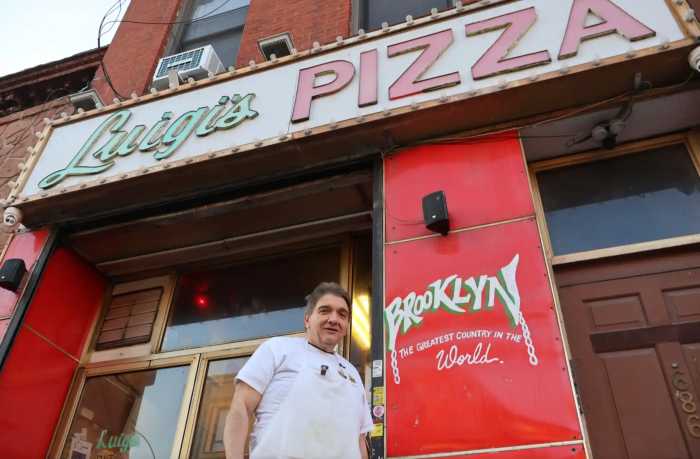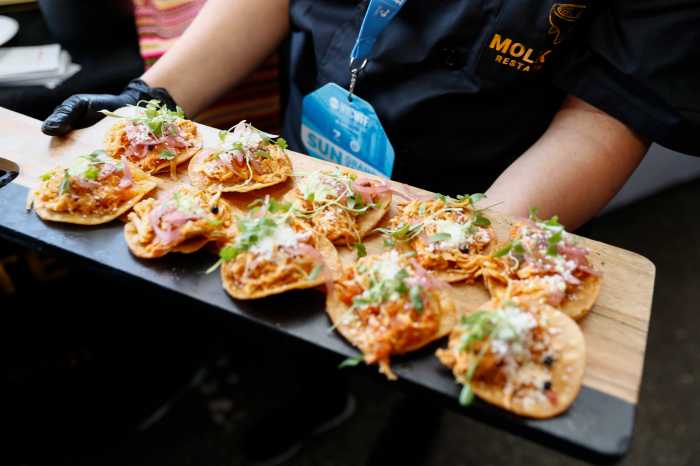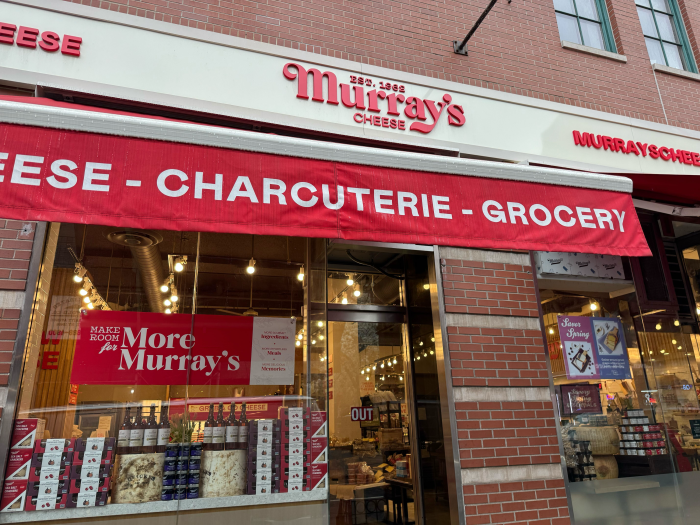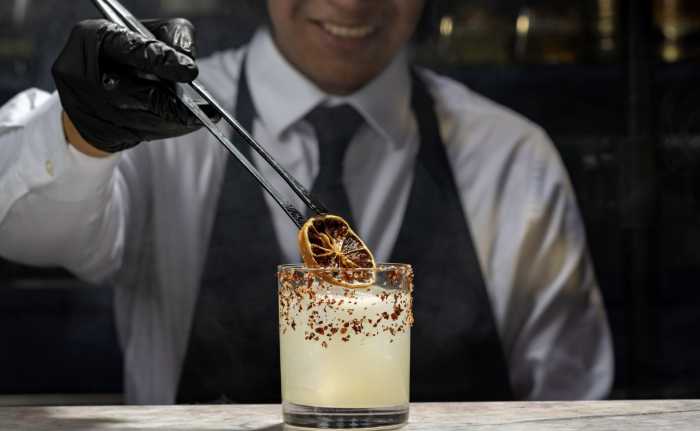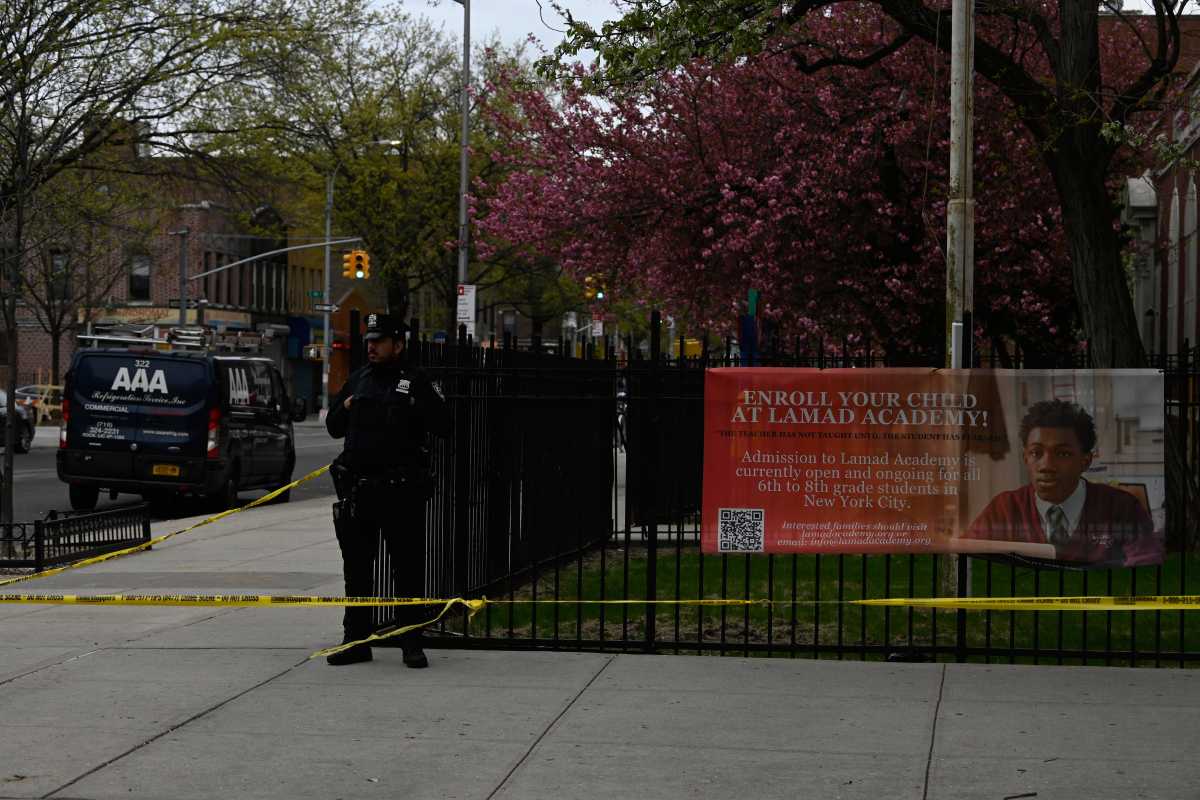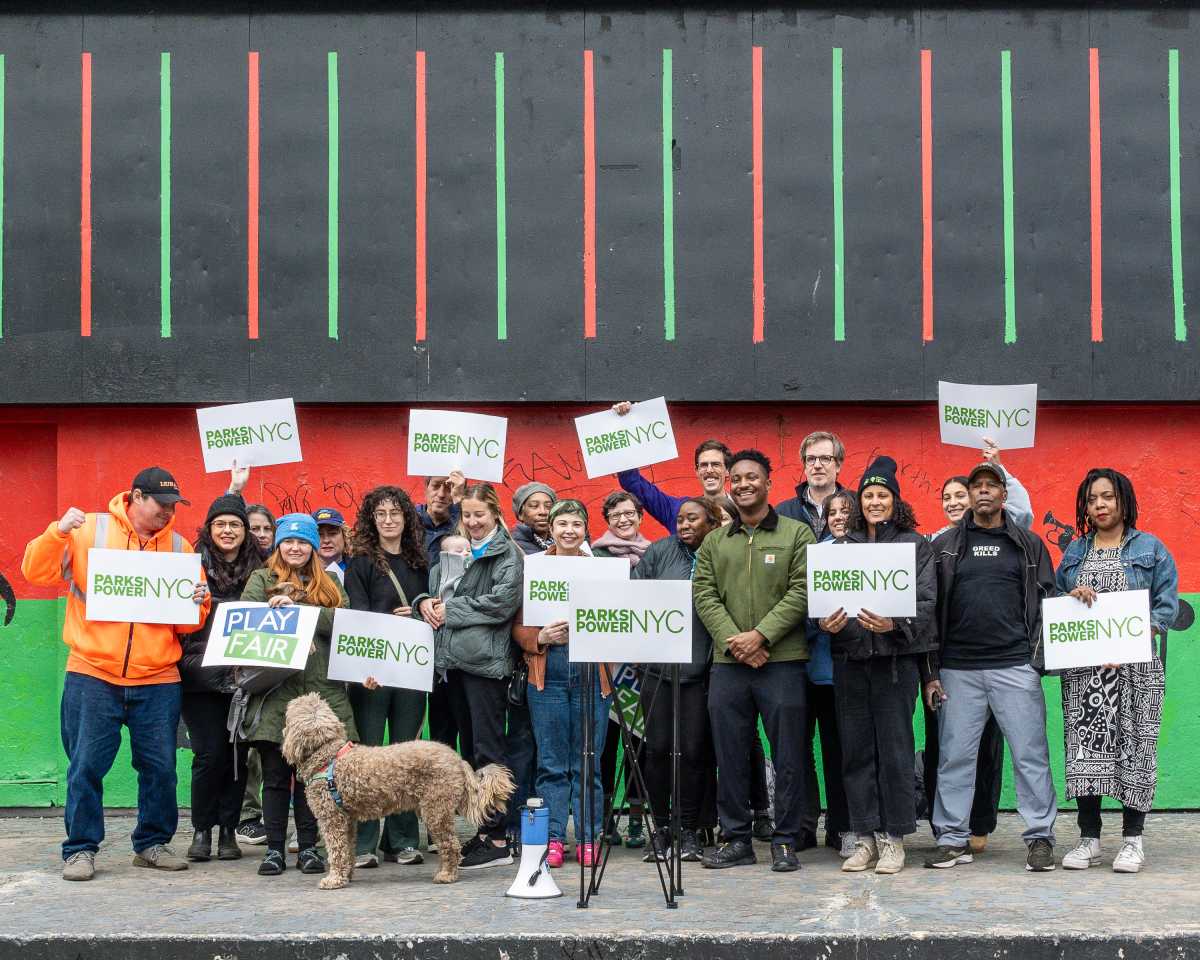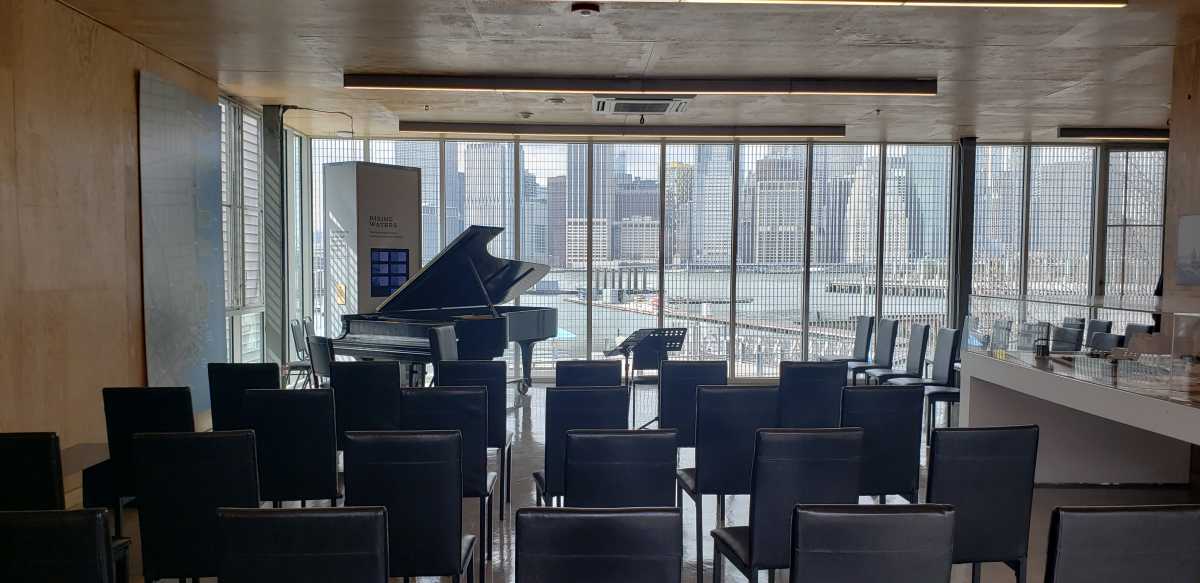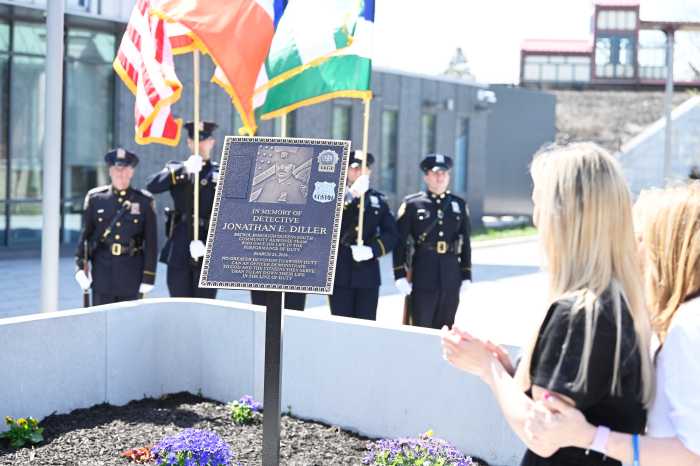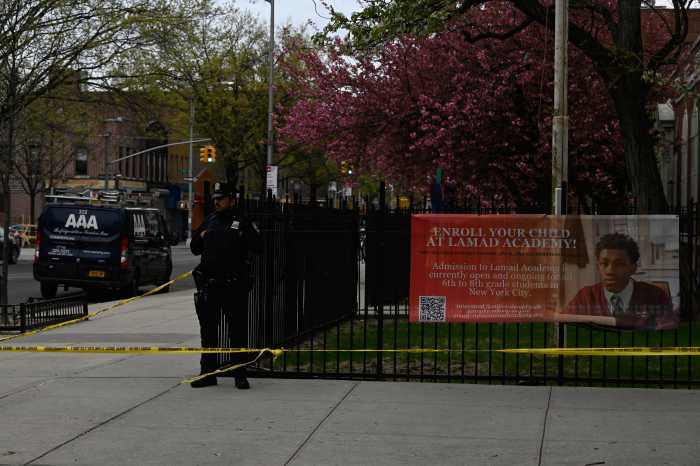With as much turnover as there is on the city’s dining scene, it’s downright foolish to let yourself get too attached to any one restaurant or bar.
But fools fall in love, the saying goes, and food is — for many of us New Yorkers — the fastest way to our hearts.
We take a moment here, at the end of another year, to pay homage to the beloved eateries and watering holes we lost in 2017.
Below you’ll find the names of the venerated dead and their legacies.
Semilla: Celebrated for its relatively affordable tasting menu of mostly vegetable and grain dishes, this tiny Williamsburg chef’s counter served its final dinners in March. Co-founder José Ramírez-Ruiz, whose partner had already left the business, said the decision to close the three-year-old operation was a very personal one. Semilla’s star shined brightest in 2015, when Eater’s Bill Addison named it one of the country’s 21 best new restaurants, and Michelin inspectors awarded it one star.
Angelica Kitchen: For 40 years, you could count on this pioneering East Village vegan restaurant for a homey but healthy meal. It closed its doors in April, and owner Leslie McEachern attributed Angelica’s demise to rising rents and a changing neighborhood. Former regulars especially miss its dragon bowls (heaps of rice topped with beans, tofu, seaweed and steamed veggies) and rustic, gluten-free cornbread.
Craftbar: “Top Chef” judge Tom Colicchio pulled the plug on his Flatiron district eatery — a casual offshoot of his flagship restaurant, Craft — in April. He explained his reasoning on Twitter: “Lease is up and the rent is too damn high.” Over the course of 15 years, its kitchen hosted chefs like David Chang and developed a “template for the modern Brooklyn hipster restaurant: bar dining, diner-style booths, comfort food, done in an elevated way,” according to New York restaurant critic Adam Platt.
Annisa: Anita Lo closed her acclaimed West Village restaurant in May. The celebrated chef said that skyrocketing real estate taxes and the rising minimum wage made it impossible to cover all costs, after 17 years in business. The civilized dining room at Annisa had showcased Lo’s unique style of multicultural American cooking: “It’s still not easy to say what Ms. Lo’s style is, but it is hers, and hers alone, and the city is a more exciting place for it,” New York Times critic Pete Wells wrote in his 2014 three-star review.
Isabella’s: You could say the appeal of this Upper West Side dining staple, which closed abruptly in May after almost 30 years on the corner of 77th Street and Columbus Avenue, was its attractive location. Isabella’s Mediterranean-inspired fare never won any accolades, but its broad menu and sidewalk patio did make it the perfect brunch spot on a weekend outing to the Museum of Natural History (and a good shooting location for one “Curb Your Enthusiasm” episode). The building’s landlord and the conglomerate that owned the restaurant blamed each other for the restaurant’s untimely end.
Public: This Michelin-starred restaurant with several James Beard awards to its name closed up shop in June. Shockingly, it wasn’t NoLIta rent prices that sunk Public; it was an anticipated two years of building renovations that would make the eatery unsustainable. When it opened in 2003, its Australian fare and industrial-vintage design made its “something of a game changer,” according to the Times. Its legacy lives on in those chefs who perfected their skills in its kitchen, including Ann Redding of Uncle Boons and Matt Hyland of Pizza Loves Emily.
Bouley: After 30 years in three locations, this French fine-dining establishment by long-influential chef David Bouley served its last meal in TriBeCa in July. Its star power had dimmed in recent years, but back in the ’90s, it won a four-star review from the Times and one of Zagat’s slots for the top three dining rooms in the city. You could say Bouley made its most profound mark on the city’s dining culture as an incubator for culinary talent: Dan Barber of Blue Hill at Stone Farms, Eric Ripert of Le Bernadin and Christina Tosi of Milk Bar all worked as chefs in the restaurant’s kitchen before launching their own projects.
Cup & Saucer: After nearly 30 years under the ownership of two Greek immigrants, John Vasilopoulos and Nick Tragaras, this old-school diner on the eastern edge of Chinatown fried its last eggs and bacon in July. Regulars loved the greasy spoon’s unchanged décor (including a cup and saucer design on the floor and mustard yellow spinning stools), plentiful comfort food and welcoming staff. The restaurant’s death knell, according to the owners, was a steep rent hike.
Franny’s: Owners Francine Stephens and Andrew Feinberg announced their pizzeria’s imminent closure on its website in July, offering no explanation other than “it’s time to say goodbye.” The couple opened the restaurant — a favorite among neighbors and a destination for Manhattanites — in its first Flatbush Avenue location in Prospect Heights in 2004. Franny’s was heralded as a trailblazer on the Brooklyn dining scene for ushering in an era of high-end ingredients, attentive service, casual settings and relatively affordable prices.
Schiller’s Liquor Bar: Restaurateur Keith McNally opened Schiller’s at 131 Rivington St. in 2003. Its casual vibe and checkered black-and-white floors soon made it a Lower East Side mainstay, drawing locals and visitors alike. Novelist Richard Price (or his publisher) cemented its iconic status by selecting a photo of Schiller’s exterior for the cover of his 2008 book “Lush Life.” The McNally family decided to shutter the restaurant’s doors after their lease ended in August, citing a rent hike as the reason they wouldn’t renew.
Queens Kickshaw: Owners Ben Sandler and Jennifer Lim closed this Astoria neighborhood favorite in August to make way for a new restaurant, but locals still mourned the loss of its fancy grilled cheese sandwiches, vegetarian-friendly cuisine and craft cider selection. Queens Kickshaw originally launched as a sandwich and coffee joint, but, over the course of six years, it transformed into a community center of sorts, hosting live music, farmers markets, cider promotions and other special events.
Riviera Cafe: A piece of old Greenwich Village died with this 48-year-old sports bar when it served its last pint in August. In a video posted to Instagram not only after, actress and neighbor Sarah Jessica Parker described its closure as a “freaking bummer.” “I’m not even a big football fan, but I loved hearing the cheering, hooting and good times as I walked by,” she said of the noted refuge for New England Patriot fans. Asked why the cafe was ending its run, longtime general manager Steve Certell told Gothamist, “We’ve outlasted tens of thousands of restaurants in New York, we’ve had a successful run and now we’re closing.”
HiFi Bar: Under the name Brownie’s, this classic East Village bar hosted such prominent rock artists as Spoon, My Morning Jacket and the National on its stage. A relic of the gentrified neighborhood’s bohemian phase, HiFi later became home to a digital jukebox some called the best in town. In a Facebook post, owner Mike Stuto attributed his decision to close the joint in October to the “indifference” of millennials and his unwillingness to transform the place into something they’d appreciate (but he wouldn’t).
Rue La Rue Café: This “Golden Girls”-themed restaurant may have been extremely short-lived, but it enjoyed an enthusiastic following when it opened in Washington Heights in February. Owner Michael J. La Rue had decorated the place with memorabilia from the cult-favorite show, many of the items gifts from the late actress and his close friend Rue McLanahan (aka the lusty Blanche Devereaux). La Rue notified guests in November that the cafe had closed “to process the lessons learned during the rehearsal period this last year,” and it remains unclear whether it will reopen.
Saltie: For the past eight years, fan have voyaged to this small, nautically themed Williamsburg shop for cherished sandwiches like the salty Scuttlebutt, loaded with hard-boiled egg, feta, black olives, capers, pickles and pimentos aioli. Owner Caroline Fidanza, previously the chef at Andrew Tarlow’s Diner, announced Saltie’s closure at the end of December earlier this month on Instagram. Her post included an invitation to “come by and cry into your sandwich” and the hashtag #itsnottherentitsme.
NoHo Star: The 32-year-old neighborhood fixture, serving up part New-American, part Chinese fare, bids the older downtown crowd adieu on Dec. 31. Paperwork filed with the state’s Department of Labor cited “economic” reasons for closing. Founder George Schwarz — the German-Jewish émigré behind not only the NoHo and its sister cocktail bar, but Elephant & Castle and One Fifth — died in December 2016.
Le Cirque: The circus-themed French dining establishment has lived at three different locations during its 43-year history of catering to the whims of the powerful and the famous. The Maccioni family says it will close the storied restaurant in the Bloomberg Tower on East 58th Street after dinner on New Year’s Eve and search for a fourth, smaller space. High rent is reportedly the cause, but Le Cirque has also struggled with bankruptcy filings, class-action and sexual-harassment lawsuits and sinking reviews in recent years. Back in its heyday, the restaurant was “the epitome of a clubby Manhattan fine-dining scene whose snobbishness, far from undermining the enterprise, was the mighty engine of its success,” food writer Helen Rosner noted.



